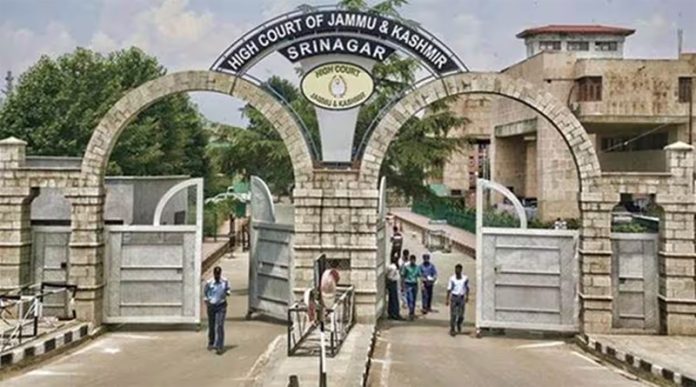Excelsior Correspondent
Srinagar, Mar 5: The High Court in a significant judgement has held that the Deputy Commissioner (DC) has no power to set aside the mutation orders passed by the Tehsildar as the attestation and cancellation of mutations is quasi-judicial.
Justice Sanjay Dhar while quashing the orders of Deputy Commissioner Kathua, whereby mutations in favour of the aggrieved petitioners were set aside recorded that there is no such administrative power vested with the DC to set aside the mutations passed by Tehsildar.
The Deputy Commissioner in his reply submitted that he has exercised his administrative powers. “I am afraid, there is no such administrative power vested with the Deputy Commissioner that would give him jurisdiction to set aside the mutation orders passed by the Tehsildar. The power to attest a mutation as also the power to set aside the mutation, is quasi-judicial in nature”, Justice Dhar recorded.
Court further said that the power can never be termed as an administrative power of the Revenue Officer as this power is to be exercised by the Revenue Officers strictly in accordance with the provisions contained in the J&K Land Revenue Act and that too after affording an opportunity of hearing to the affected party by adhering to the principles of natural justice.
Court said that while reviewing its own order, a Revenue Officer has to give an opportunity of hearing to the affected party. “The same is the position when a Divisional Commissioner or Financial Commissioner exercises his revisional powers under Section 15 of the Act. A Revenue Officer is obliged to adhere to the principles of natural justice before setting at naught a mutation order attested in favour of a person”, Court mentioned.
While dealing with the instant case the Deputy Commissioner, Kathua court said, has adopted a novel approach by exercising powers of review in respect of the orders passed by the Tehsildar, who is a subordinate Revenue Officer and this has been done by the DC without even putting the affected party to notice.
“The manner in which DC has proceeded to set at naught the mutation orders attested in favour of the petitioners, clearly exhibits arbitrariness on his part. In view of the above, it is clear that respondent No. 2 (DC) had no authority to pass the impugned order. Besides this, he has not afforded any opportunity of hearing to the affected party”, read the judgment.
The court as such held that the order of setting aside the mutations by the DC is not sustainable in law and quashed the same and left it open for the respondent-authorities to take recourse to appropriate remedy available under law.
Court said, a Deputy Commissioner is vested with appellate powers against an order of the Tehsildar (Assistant Collector). It is not the case of the respondent-DC that an appeal against the mutation orders attested in favour of the petitioners had been filed before him. Thus, it cannot be stated that while passing the impugned order, he has exercised its appellate power in terms of Section 11 of the Act.
“Since the orders of mutation were passed by the Tehsildar and not by the Deputy Commissioner, as such, it can also be not stated that the Deputy Commissioner has exercised his suo moto powers of review as contemplated in Section 13 of the Act”, Court said.
Court said, the Deputy Commissioner is not vested with powers of revision in terms of Section 15 of the Act, as such, it cannot be stated that while passing the impugned order, Deputy Commissioner, Kathua has exercised his revisional jurisdiction.


